Springbank 15 Year Old Single Malt Scotch Whisky
$269.99
700 mL in size
Proof92 (46% ABV)
*Please be aware that this bottle’s ABV may fluctuate.
The 15-year-old single malt whisky from Springbank is a deep, dark, and brooding jewel from the Campbeltown area. Bottled at 46% ABV and made every year from lightly peated barley, it has a finish that mimics the tide’s ebb and flow over Kintyre’s pebble beaches. It has rich, peaty flavors of barbecued beef jerky, clove, mint, iodine, oxo cube, canned prunes, lobster creels, and sooty kiln smoke. It’s best enjoyed with a good cigar or after dinner.
Springbank 15 Year Old: A Quintessential Expression of Artisan Single Malt Scotch Whisky
If you’re searching for a Single Malt Scotch Whisky that delivers complexity, character, and a touch of history in every sip, look no further than the Springbank-15 Year Old. Produced by one of Scotland’s most respected family-owned distilleries, Springbank Scotch Whisky represents everything that’s great about traditional, handcrafted whisky.
At Rare Finds Liquor Store, we’re proud to offer premium and hard-to-find bottles like Springbank Scotch—especially its iconic 15-year-old expression. Whether you’re a long-time collector or someone seeking to buy Scotch whisky for a truly memorable experience, Springbank-15 is a bottle that belongs on your shelf.
The Springbank Ethos: Craft Above All
To appreciate the 15 Year Old Springbank , one must first understand the unique philosophy behind Springbank scotch whiskey. Hailing from Campbeltown, a region once known as the “whisky capital of the world,” Springbank is a bastion of tradition in an increasingly modernized industry. It is the most hands-on distillery in Scotland, famously malting 100% of its own barley on its traditional floor maltings, a labor-intensive process nearly extinct elsewhere.
This commitment extends to its unique two-and-a-half-times distillation process, which imparts a signature full-bodied and oily texture that is the hallmark of all Springbank scotch. In an era of automation, Springbank’s stubborn, artisanal methods mean every bottle is a testament to time-honored craftsmanship. When you Buy scotch whisky from Springbank, you are investing in authenticity.
A Masterclass in Maturation: The 15-Year Difference
The 15 Year Old Springbank takes the raw, charismatic spirit of the distillery and elevates it through fifteen years of careful maturation. This extended slumber in oak casks is where the magic truly happens. The distillery uses a high proportion of sherry casks—specifically, ex-Oloroso sherry casks—in the maturation of this expression.
These dark, rich sherry casks work in beautiful symphony with the distillery’s character. They impart deep, dried fruit flavors, dark chocolate notes, and a complex spiciness that intertwines with Springbank’s innate maritime character. The extra years in wood soften the spirit’s edges without diminishing its power, creating a layered and incredibly balanced malt that is both challenging and immensely rewarding. It is a definitive example of how oak maturation can elevate a great spirit to legendary status.
Tasting Notes: The Depths of Flavor in Springbank 15 year old single malt scotch
The Springbank-15 Year presents a deeper, richer hue than its younger sibling, a beautiful amber gold hinting at its sherry cask influence.
-
Nose: The aroma is immediately complex and captivating. Initial waves of dark, dried fruits—figs, dates, and raisins—rise from the glass, courtesy of the Oloroso sherry casks. This is complemented by a distinct nuttiness, like walnuts and almonds, followed by classic Springbank notes of gentle, earthy peat smoke and a soft maritime breeze. Deeper still lie aromas of dark chocolate, leather, and polished oak.
-
Palate: The first sip confirms the nose’s promise with a luxuriously thick and oily mouthfeel that coats the palate. The rich sherry influence dominates upfront with flavors of Christmas cake, stewed plums, and treacle. This sweetness is perfectly balanced by a peppery spice, dark bitter chocolate, and that ever-present, gentle peat smoke. The distillery’s characteristic citrus zest and hint of brine are still detectable, adding a layer of refreshing complexity that prevents the dram from being overly heavy.
-
Finish: The finish is exceptionally long, warm, and dry. The notes of spice, dark fruit, and oak tannins linger for an impressively long time, leaving a memorable impression of sophistication and depth. It is a finish that invites contemplation.
The Springbank-15 in the Pantheon of Scotch Whisky Brands
When you explore the landscape of scotch whisky brands, you find a spectrum from large-scale consistent blends to small-batch, terroir-driven single malts. Springbank firmly occupies the latter category. It is the antithesis of mass production.
Choosing to Buy scotch whisky like Springbank-15 is a choice for character over conformity. It is a whisky that speaks boldly of its origin and its maker’s philosophy. It doesn’t seek to be everything to everyone; instead, it offers a profound, complex experience for those willing to explore its depths. Among the world’s great Single Malt Scotch Whisky offerings, it holds a revered spot precisely because of its unwavering authenticity and unique flavor profile.
How to Enjoy Your 15 Year Old Springbank whisky Scotch whisky
To fully honor the craftsmanship in your glass, we recommend enjoying this whisky neat in a Glencairn or tulip-shaped nosing glass. Allow it time to breathe in the glass; this aeration will unlock even more of its intricate aromas and flavors. A few drops of water can be added to further break down the alcohol and reveal hidden subtleties, particularly more floral and fruity notes.
While its complexity is best appreciated neat, it can also elevate a classic Scotch-based cocktail like a Blood and Sand for those feeling adventurous.
Why This Bottle is a “Rare Find”
The term “rare” is often overused, but for Springbank, it is a reality. Due to its intensely manual production process, output is inherently limited. The 15-Year-Old expression, with its additional aging, is even more scarce. High demand from collectors and connoisseurs worldwide means that a bottle of Springbank-15 Year Old Scotch whisky for sale is a genuine opportunity.
It is a bottle that signifies a deep appreciation for the art of whisky-making. It is a conversation piece, a collector’s item, and most importantly, an unforgettable drinking experience.
Acquire This Masterpiece at Rare Finds Liquor Store
Why Buy Springbank Scotch Whisky from Rare Finds Liquor Store?
At Rare Finds Liquor Store, we do more than just offer bottles—we help our customers discover truly exceptional spirits. As a trusted online destination for collectors and enthusiasts, we specialize in rare, hard-to-find, and limited-edition whisky Scotch whisky offerings.
When you shop with us, you get:
-
Access to premium and limited whisky scotch whisky
-
Properly stored bottles to maintain quality
-
Competitive pricing on rare expressions
-
Fast, secure shipping
-
Expert support from real whisky lovers
We believe the best whisky experiences start with a well-curated selection, and Springbank Scotch Whisky is one of the finest choices you can make when exploring authentic, independently crafted spirits.
Scotch Whisky for Sale – Don’t Miss This Rare Opportunity
Because of its small-batch nature, Springbank production is limited—and bottles like the 15-Year-Old are increasingly hard to find. If you’re browsing Scotch whisky for sale and see this bottle in stock, don’t wait too long. Collectors and enthusiasts worldwide are snapping it up as soon as it hits shelves.
Add it to your cart today and experience one of Campbeltown’s proudest creations. Whether you’re buying it for yourself or as a gift, this is a bottle that makes a strong impression.
How to Enjoy 15 Year Old Springbank
Wondering how to best enjoy your Springbank Scotch?
-
Neat: Ideal for sipping slowly to appreciate the layers of flavor
-
With a splash of water: Opens up the whisky, revealing more fruit and spice
-
Paired with dark chocolate or a cigar: For a truly luxurious experience
This is a whisky that rewards patience and mindfulness. Take your time, and let each sip tell the story of 15 years of careful maturation and craftsmanship.
A Note to Collectors and Connoisseurs
If you’re building a premium whisky collection, Springbank-15 Year Old is an essential bottle. It represents a dying breed of traditional Scotch whisky—produced without shortcuts, with integrity, and in limited quantities.
Owning a bottle from Springbank isn’t just about taste—it’s about preserving a piece of Scotch whisky history.
At Rare Finds Liquor Store, our mission is to connect you with the world’s most extraordinary spirits. We are proud to offer the Springbank-15 Year Old to our community of enthusiasts. Each bottle we source is handled with the utmost care, ensuring it arrives at your door in perfect condition, ready for your collection or a special occasion.
We invite you to explore this masterpiece and the other rare treasures in our curated collection.
Secure your bottle of this legendary Single Malt Scotch Whisky today. Discover the taste of true, uncompromised craftsmanship with Rare Finds Liquor Store.

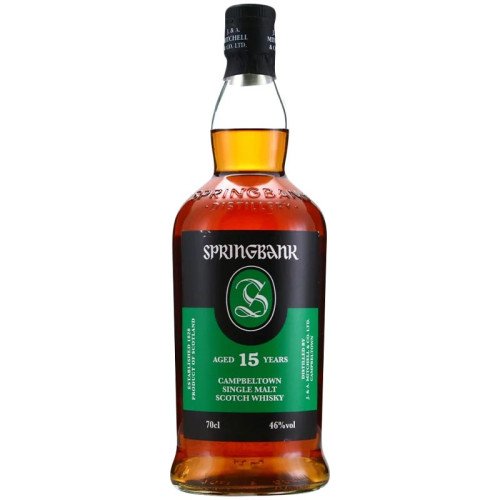
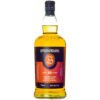

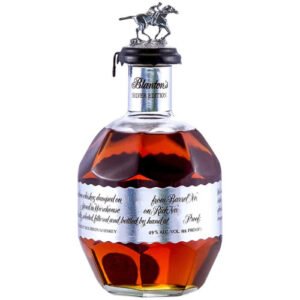
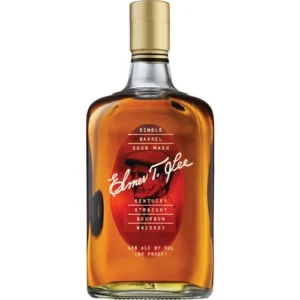
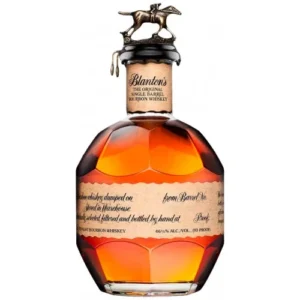
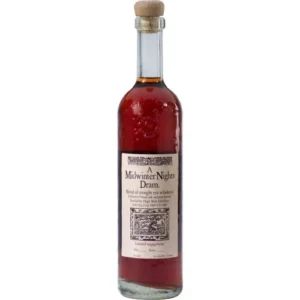
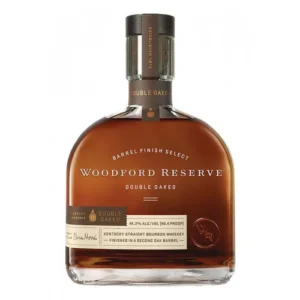

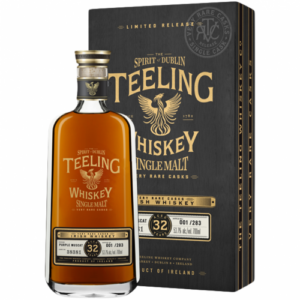

Reviews
There are no reviews yet.